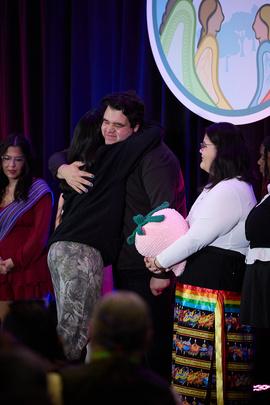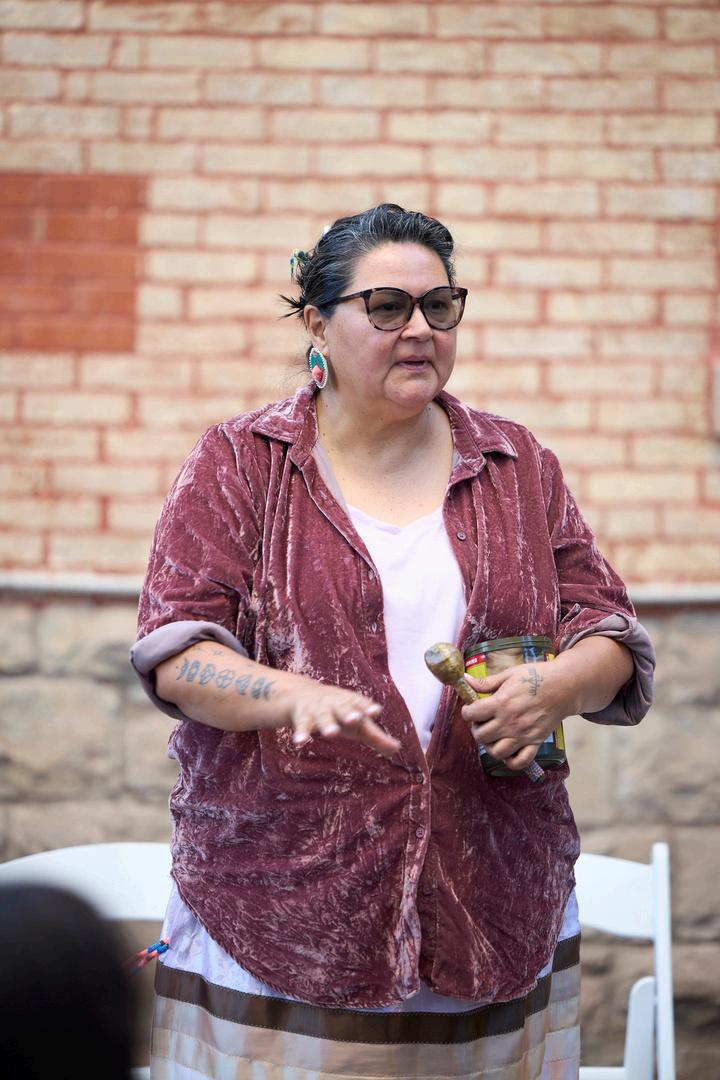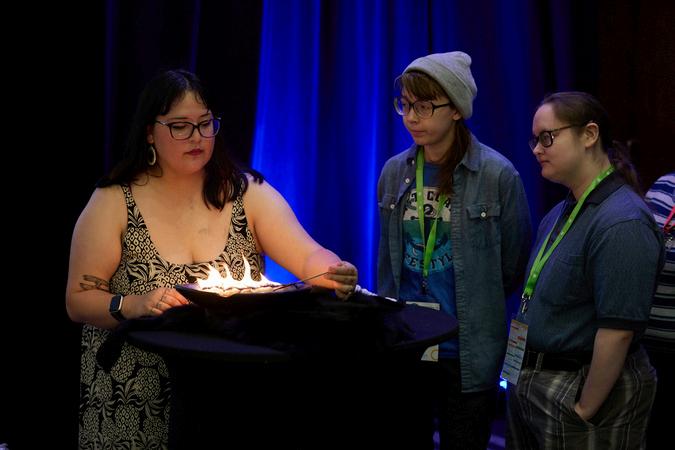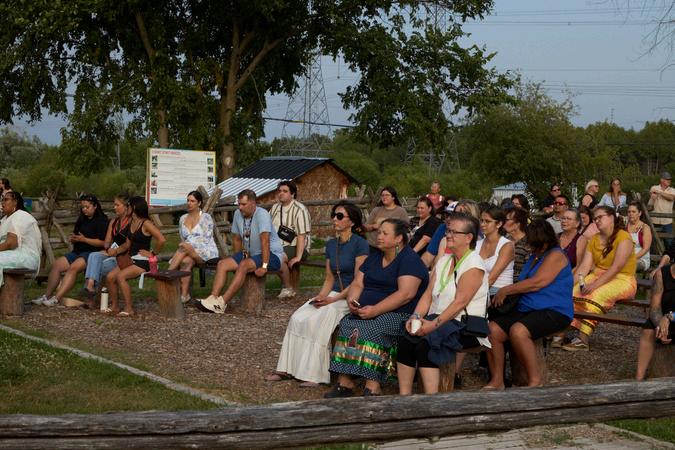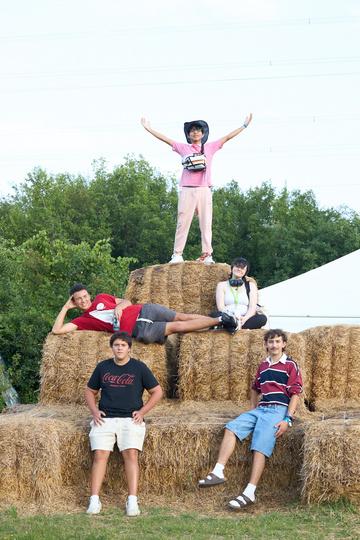
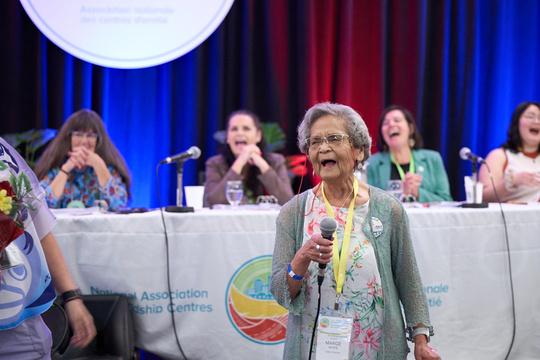



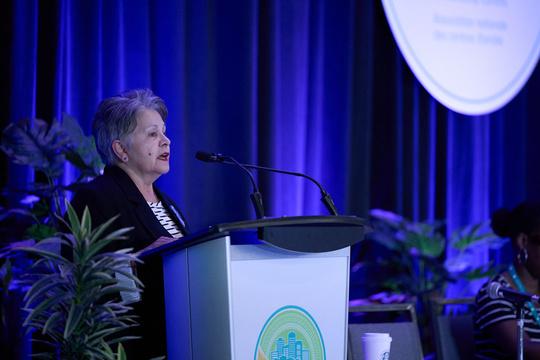


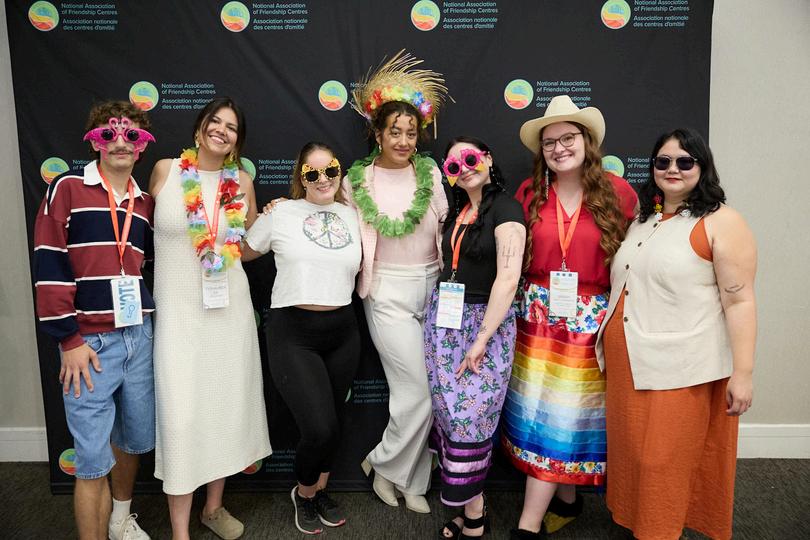



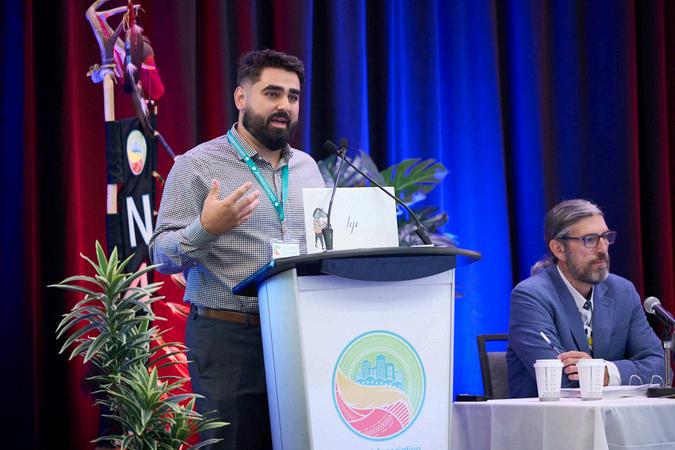
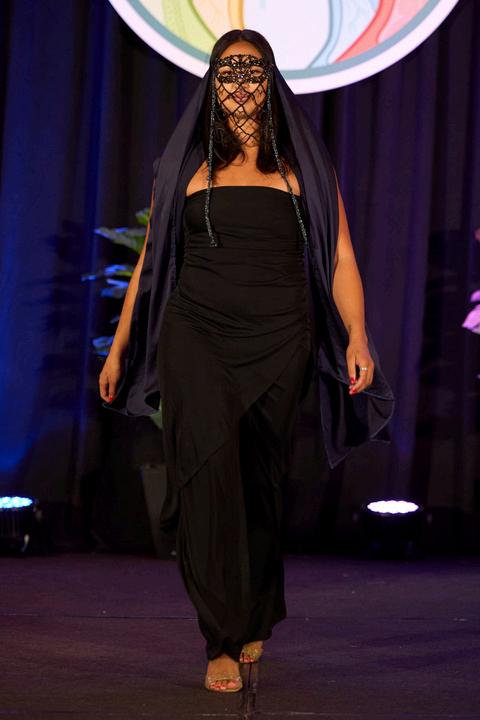


















Wachay Misiway, Kwe, Tansi, Tungasugit,
Autumn is my favourite time of the year. It is a time when the activity of the summer is coming to a close, the leaves change colour, and it is a signal to get ready for the winter and time of rest. I want to take a moment to reflect on a time of change here at the National Association of Friendship Centres (NAFC).
First, I want to reflect on the incredible summer that we had. We had to make a change in location for the 35th National Youth Forum and the 54th Annual Meeting. Initially, we were to go to Brandon, MB, but the wildfires prevented us from being able to and we moved the meetings to Ottawa. Still, we brought together hundreds of youth, delegates, and community members. From inspiring panel discussions and cultural performances to youth awards and the Youth Empowerment Gala, these events highlighted the energy, talent, and commitment of Indigenous youth and our broader Friendship Centre network. It was a powerful reminder of what we can accomplish when we come together in purpose and unity. We are excited to continue our all-women Executive Committee with Pam Glode-Desrochers as she transitions from Vice-President to President, and we warmly welcome Barb Ward-Burkitt and Lois Duke as they step into their new roles as Secretary and Vice-President.
I am so grateful to the leadership of Kelly Benning, President and Édith Cloutier, Secretary for their vision, dedication and contributions during their time with the NAFC They took up their roles and served with kindness, strength, compassion and commitment. The Friendship Centre Movement is better for the benefit of their service and we are deeply grateful for their efforts.
A big change coming this season is that after seven years leading the NAFC, I will be stepping away from my role as CEO to take on the role of President and CEO of Indspire.


It has been a tremendous privilege to serve this organization and work alongside so many inspiring and devoted leaders, elders, youth, and community members. I am proud of what we have achieved together and confident that the Friendship Centre Movement will continue to thrive and lead the way in supporting urban Indigenous peoples across the country. I understand that there may be concern about change, but I want to assure everyone that the NAFC and the Friendship Centre Movement is in a good place and we will continue our journeys in strength and unity. I could not step away from this incredible movement and dream role if I believed that we were in a place where we could not handle this change.
Thank you for this opportunity and letting me lead in a role I truly love. The work of Friendship Centres is unique, lifesaving, and truly world class. There exists nothing like us anywhere and we do this work with compassion, dedication and belief in community.
As I prepare to transition from this role, I do so with deep gratitude and confidence in the NAFC Executive Committee, Board of Directors, staff, and members. The strength, vision, and dedication of this Movement will ensure the Friendship Centre Movement continues to grow, innovate, and make a meaningful difference for generations to come.
With gratitude and respect, Gitchi-Meegwetch,
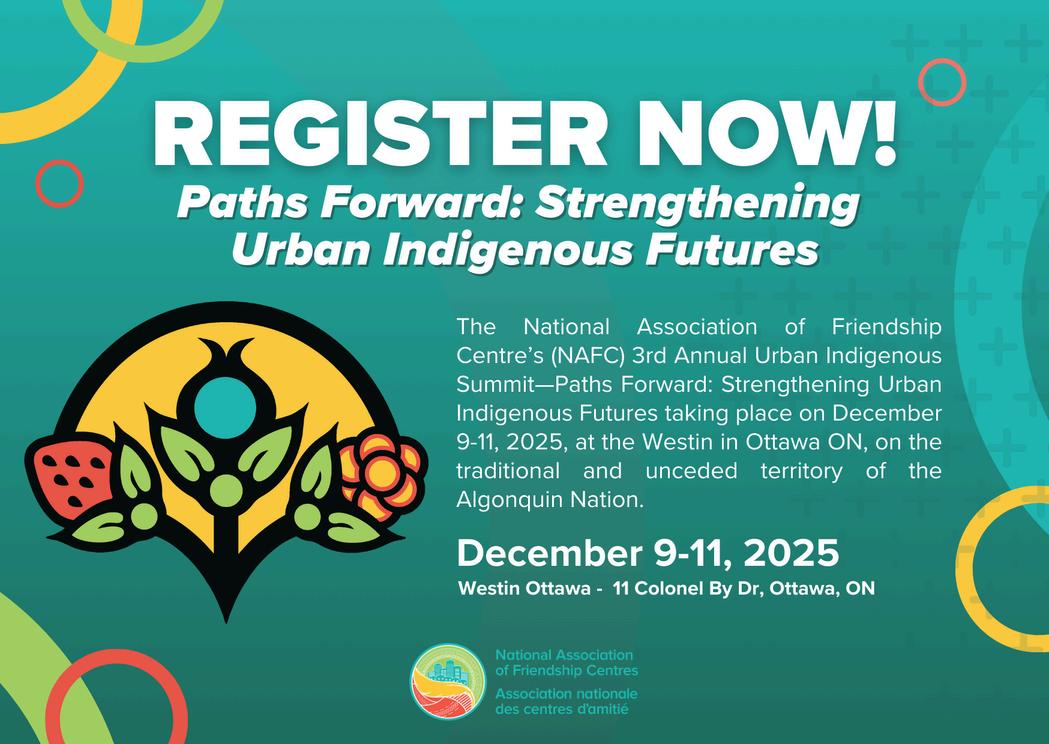
The NAFC's 3rd Annual Urban Indigenous Summit will take place December 9–11, 2025 at the Westin Hotel in Ottawa, Ontario This year’s theme is “Paths Forward: Strengthening Urban Indigenous Futures” . This national gathering will bring together leaders, changemakers, and community members to engage in critical dialogue, celebrate innovation, and strengthen the collective vision for urban Indigenous communities across Canada.
Register now: http://nafc.smudging.ca/
As planning continues, we are pleased to invite sponsors to support this important event. By partnering with us, sponsors will play a key role in advancing shared priorities and amplifying the impact of this gathering Our sponsorship package is now available on the NAFC website
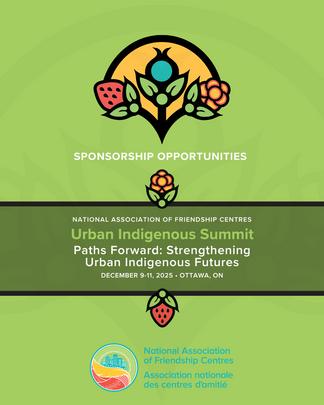
Our sponsorship package is now available on the NAFC website here. www.nafc.ca/summit-25







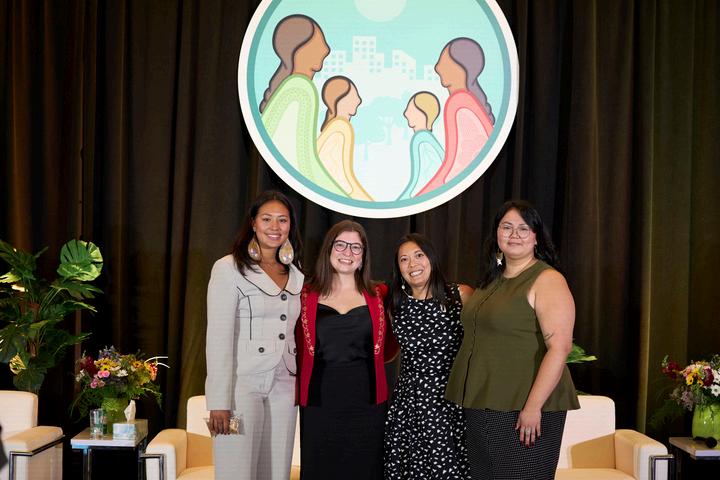


The Youth Forum had over 150 participants made up of youth, vendors, community members, and partners.
The forum began with a Friendship Circle and Drum social. The following day featured two dynamic panel discussions: the first, Intersectional Identities: A Panel on the Unique Experience of BlackIndigenous Youth, and the second, Political Advocacy 101 with Isabel Metcalfe
Participants also enjoyed inspiring presentations from Theland Kicknosway, Sadie Lavoie, and Joleen Mittion. Throughout the forum, youth engaged in a variety of fun activities including an exciting volleyball tournament, congratulations to Team Manitoba on the win!

The Youth Forum concluded with a powerful Youth Empowerment Gala, where youth took to the runway in a fashion show that celebrated the diverse identities and experiences of Indigenous youth through style, expression, and creativity. The evening closed with a dance party and DJ set from DJ Bear Witness.

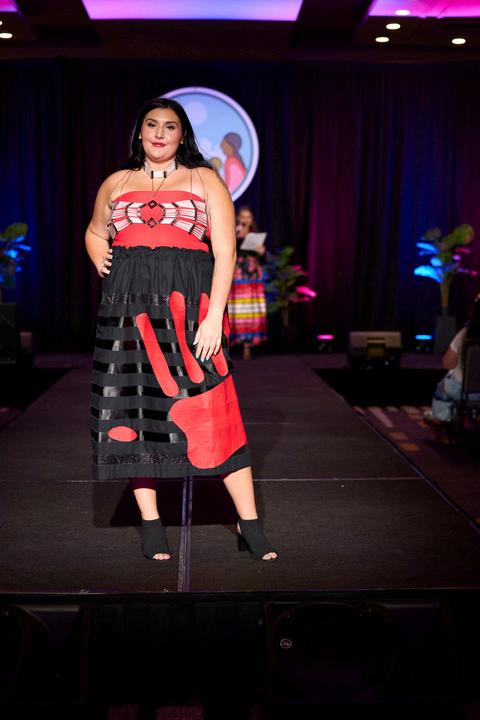
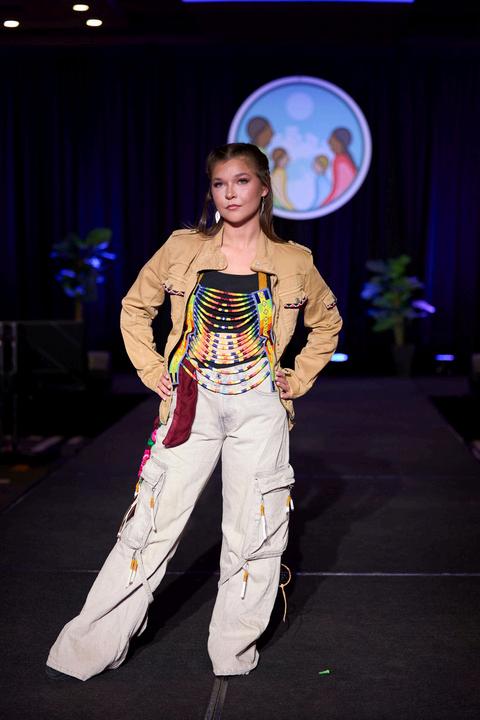
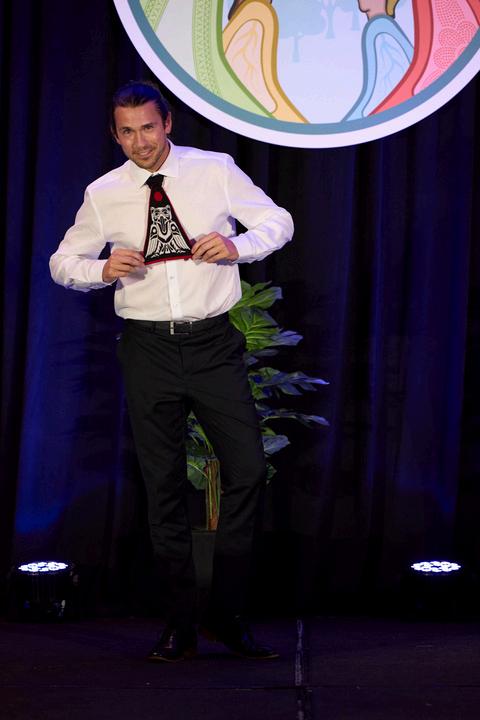

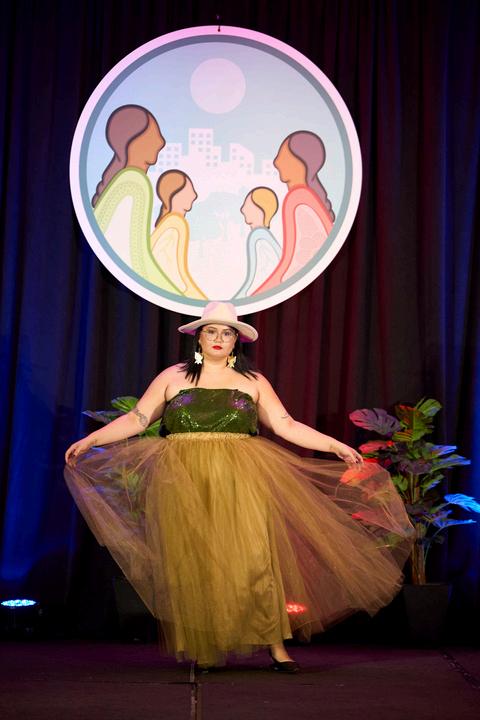


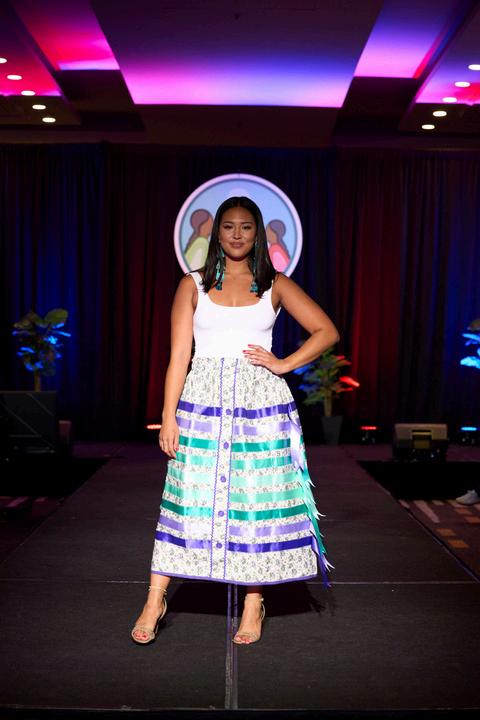


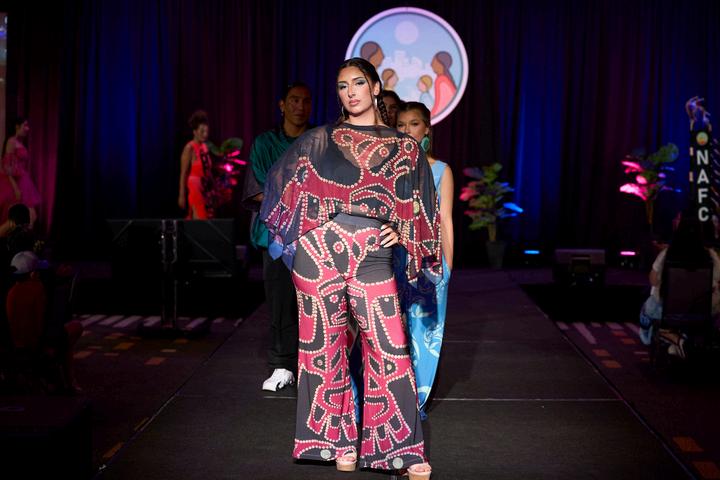



We would like to congratulate and welcome Caley-Rain Anderson, d Nadya Comeau to the Youth Executive, and our new ative
The Youth Executive consists o
Caley-Rain Anderson, Presid
Kiera Gomuwka, Vice-Presi
Nadya Comeau, Secretary
Aby-Gaelle Jerome, Treasur
Samantha Jack, Youth Exec
Regional Representatives are
Zackery McNab, North
Ethan Cameron, British Colu
Davina Nelson, Alberta
Theland Kicknosway, Saska
Nevaeh Munroe, Manitoba
Anyssa Ford, Ontario
Shawerim Coocoo, Quebec
Melanie Nasson, Atlantic





The Youth Auction raised approximately $ nd placed bids in support of the Indigenous Youth Council. Your generosity makes a meaningful difference.


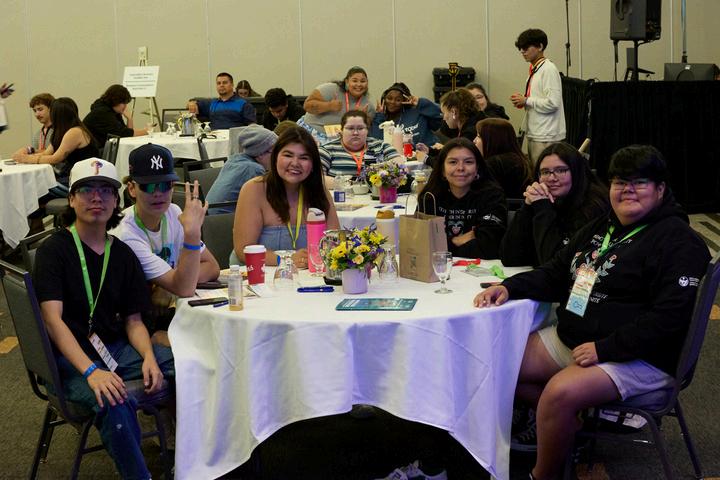

The Annual Metting saw over 380 participants made up of delegates, youth, community members, and partners.

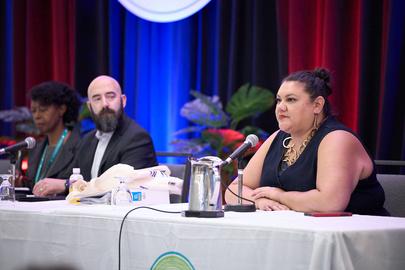
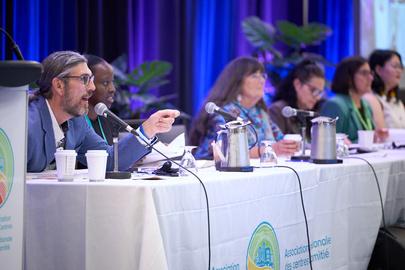

On Monday July 28, participants were invited to a cultural evening event at Mādahòkì Farm. Guests had the opportunity to tour the farm, and watch incredible performances that included Inuit Throat singing, Métis jigging, and several First Nation dance styles Thank you to Mādahòkì Farm for hosting the event.
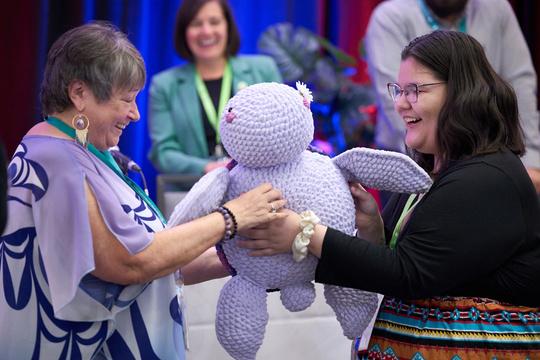

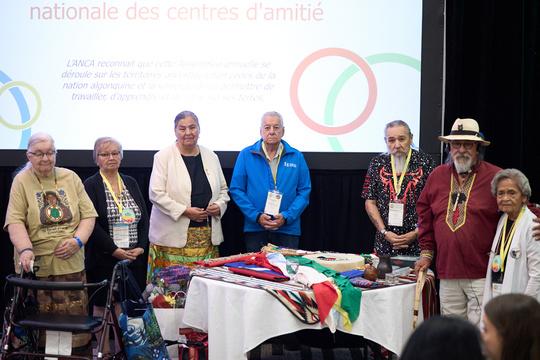





We also took a moment to honour Mel Maracle for an incredible milestone, this year marks her 50th anniversary with the NAFC. Mel’s dedication, knowledge, and heart continue to shape the Friendship Centre Movement, and we are so grateful for her continued leadership and commitment Congratulations Mel!

We are pleased to share the results of the 2025 NAFC electio ers, Lois Duke, Barb Ward-Burkitt, and Samantha Jack were elected to the Ex resident, VicePresident, Secretary, and Youth Executive. We thank all candi ent, and every delegate who participated in shaping our leadership We look ship of our allIndigenous women Executive Committee
Our Executive Committee consists of:
Pam Glode-Desrochers, President
Lois Duke, Vice President
Laurie Bouvier, Treasurer
Barb Ward-Burkitt, Secretary
Samantha Jack, Youth Executive
Our Board of Directors consists of:
Stacey Howse, Newfoundland and Labrador
Cheyenne Labrador, Nova Scotia
Patsy McKinney, New Brunswick
Jennifer Brazeau, Quebec
Jason Gobeil, Manitoba
Myra Malboeuf, Saskatchewan
Robert (Bob) Oshanyk, Alberta
Cyndi Stevens, British Columbia
Cindy Wasylyshyn, Northwest Territories/ Nunavut
Tanya Andre, Yukon
Caley-Rain Anderson, National Youth Representative
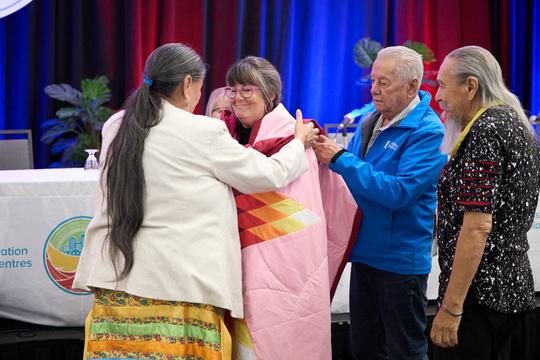

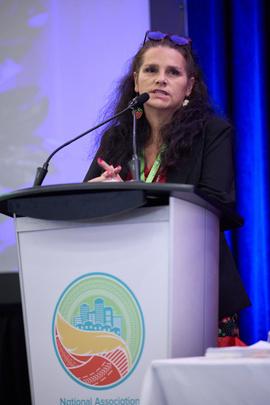
The NAFC would also like to extend our heartfelt thanks to Kelly Benning and Édith Cloutier for their incredible contributions to the Friendship Centre Movement. Kelly served as President, and Edith served as Secretary on NAFC’s Executive Committee. Both women have provided unwavering leadership, dedication, and vision Their impact has been felt across the Friendship Centre Movement, and we are deeply grateful for all they have done to strengthen and support urban Indigenous peoples.


The NAFC was proud to present His Majesty King Charles III Coronation Medals to individuals who have demonstrated outstanding service and commitment to urban Indigenous communities. We honour their leadership, and dedication to the Friendship Centre Movement.







Congratulations to Damon McAllister from Uncle Gabe's Friendship Centre on winning the Nelson Mayer Youth Recognition Award. This award is gifted to an extraordinary youth whose Friendship Centre has recognized their outstanding work in the community. At just 15 years old, Damon not only took the opportunity to immerse himself into everything the Youth Forum has to offer, but even took the courageous step of running in his first Indigenous Youth Council election. We are excited to see Damon continuing to attend youth events and grow within the Friendship Centre Youth Movement.
Congratulations to Chayce Taylor for being awarded the “Most Active Youth” award Chayce is a member of the Riverton & District Friendship Centre. He is a wonderful youth who has been involved in the Friendship Centre Movement since he was young, attending his first NAFC Annual Meeting when he was a baby. Thank you, Chayce for your participation in the Friendship Centre Movement. Congratulations Chayce!
Congratulations to Ethan Welburn-Dreveski from Dauphin Manitoba for being awarded the “Groovy Delegate” award. At this year’s Youth Forum and Annual Meeting, Ethan stepped into themse that is impossible to ignore - full of energy and authentic, groovy! Congratulations Ethan!
Congratulations to our winners!!!! Thank you for all the a you do and for being a part of the Friendship Centre Mov
Thank you to the Delta Ottawa- City Centre for hosting u
The 36th National Youth Forum, and the 55th Annual M held in Brandon Manitoba in July 2026
We look forward to seeing you all in Brandon next year!
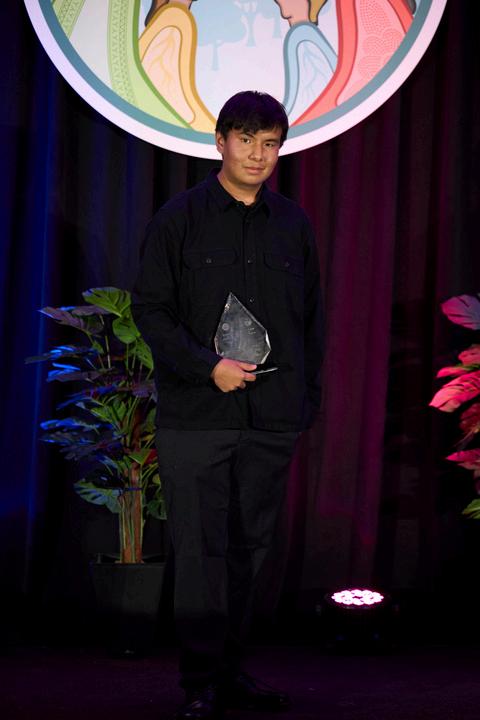

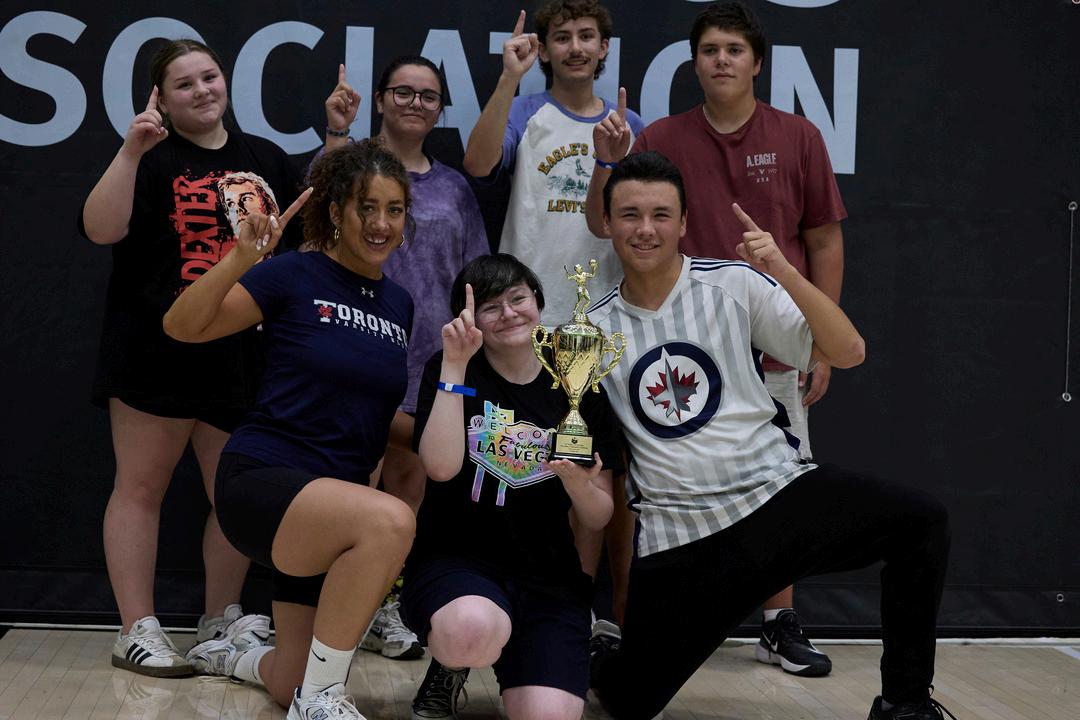


NAFC CEO Jocelyn W Formsma and Centre d'amitié autochtone de Val-d'Or / Val-d'Or Native
Friendship Centre Executive Director Édith Cloutier had the opportunity to meet with the Honourable Mandy Gull-Masty, Minister of Indigenous Services, and Claude Guay, Parliamentary Secretary to the Minister of Energy and Natural Resources.
The meeting, held at the Val-d’Or Native Friendship Centre, focused on the vital role Friendship Centres play in supporting urban Indigenous people and strengthening community connections across the country

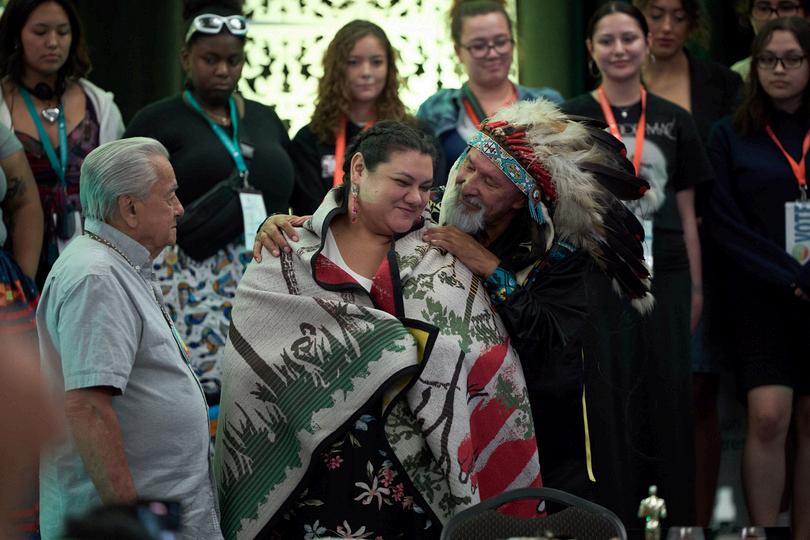

After nearly seven years at the helm of the NAFC, we announce that CEO Jocelyn Formsma will be stepping down from her position effective November 7, 2025 Jocelyn has accepted a new role as President and CEO of Indspire
Jocelyn’s vision and dedication have been instrumental in the growth and evolution of the NAFC. The positive mark she leaves on the Friendship Centre Movement will be forever celebrated. She departs on strong and positive terms, leaving both a legacy of impact and the organization in great hands.
We are deeply grateful for Jocelyn’s leadership and commitment The NAFC Board of Directors expects a smooth and strategic transition. As she prepares to pass the bundle, we receive it with honour and responsibility, ready to carry it forward for many generations to come.
The NAFC Board of Directors will engage an Executive Search firm to assist with the CEO recruitment process While this news comes with heavy hearts, it is also met with full support, understanding, and our very best wishes to Jocelyn as she begins this exciting new leadership chapter
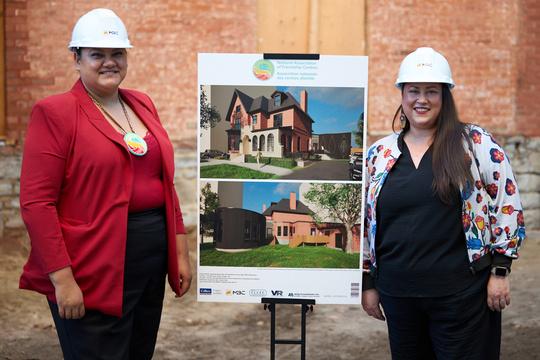
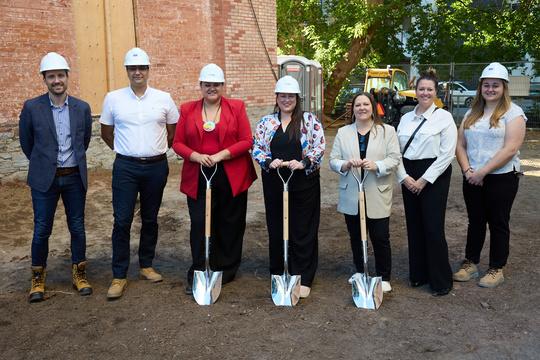

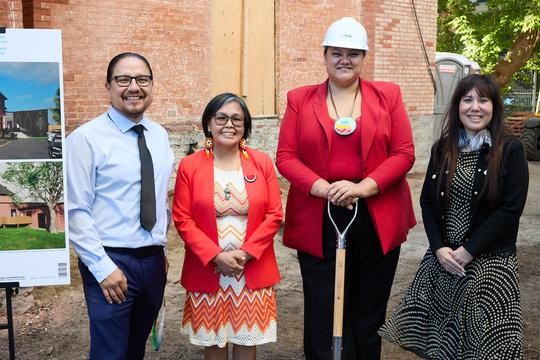
On September 15th, the National Association of Friendship Centres hosted a Sprouting Ceremony at our national office in Ottawa to mark the beginning of much-needed renovations at our headquarters
The Sprouting Ceremony symbolizes growth, renewal, and the strengthening of our ability to serve Friendship Centres and urban Indigenous communities across the country. Surrounded by friends, partners, and community members, we came together to plant the seeds for a brighter future for the Friendship Centre Movement.
We extend our gratitude to MP Leah Gazan, MP Lori Idlout, and MP Billy Morin for attending and for their ongoing support and friendship with the NAFC and the Friendship Centre Movement.
We also wish to thank our partners at Two Row Architect, Colliers Canada, and McDonald Brothers Construction (MBC) for helping the NAFC bring this much-needed renovation to life.
This milestone represents not only the physical renewal of our space, but also the ongoing growth and resilience of the NAFC and the Friendship Centre Movement. With a tentative completion date of Spring 2026, we're looking forward to hosting you all in our newly renovated space!
Over the summer, the Communications Team was busy releasing the 2024 Annual Report, supporting the 35th Youth Forum and 54th Annual Meeting (July 25–29), and launching Phase 2 of the NAFC’s Program Renewal Campaign on July 28.
The 2024 Annual Report highlights NAFC’s advocacy, campaigns, and partnerships—including the conclusion of our COVID-19 Vaccine Campaign, our ongoing partnership with Bell Let’s Talk, and initiatives like Bridging Across Canada and our Youth Leadership Curriculum. You can read the full report here.
Phase 2 of the Program Renewal Campaign wrapped up this month. It included an animated infographic video and a broadcast campaign, encouraging Canadians to contact their Members of Parliament in support of long-term, increased funding for Friendship Centres
Read the full 2024 Annual Report here.
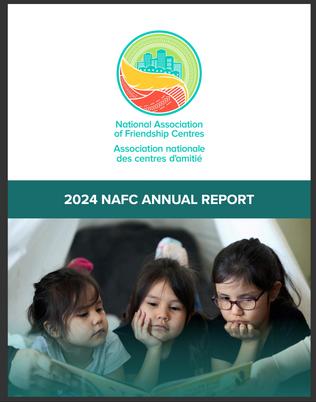
To learn more about the Program Renewal Campaign and how you can support, visit www.nafc.ca/support-the-fcm.
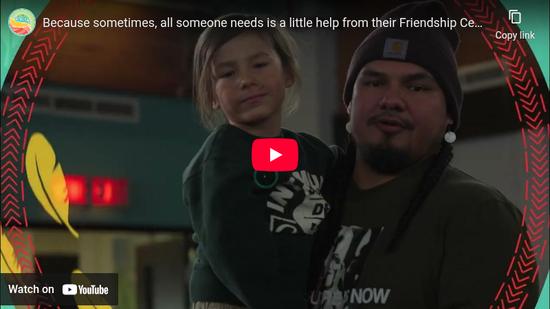

The Data Team attended the NAFC’s Annual Meeting in Ottawa (July 27–29) and connected with members on topics including governance, sovereignty, security, and data capacity.


On July 27, the Data Team hosted an engagement session with delegates covering three key areas:
1.Data Strategy: Using the example of a weekly beading class, the team illustrated how a data strategy can support decision-making, proposal writing, and participant privacy This was followed by a presentation of NAFC’s National Data Strategy
2.Bridging Across Canada: Updates were shared on NAFC’s national database, including a demonstration of the interactive Map Tool showcasing Friendship Centre programs across the country.
3.Data Capacity: The session concluded with a discussion on data capacity and priorities within Friendship Centres.
Most participants agreed that having access to relevant, accurate, and timely data was important. When participants were asked to rate their organization’s overall skill level in data management and analysis, 10 answered that they were just starting out and still using excel or paper documentation, 19 answered that they can use data to inform decisions, and 6 answered that they create their own tools and have specialized staff to manage their data.

This gives us insight into where the FCM is when it comes to managing and using their data and that a one size fits all approach will not work.
When asked what supports are needed participants identified that training, resources and funding were most important. Specifically training and funding for software, such as the Bridging Across Canada database, and for staff. The membership would also like to see a data strategy implementation guide and toolkit that they could use at their centres and have access to NAFC’s data policies and standards.
We also had the opportunity to have one-on-one conversations with members after the engagement, and they shared the following:
There is a need for national data standards if we are going to be tell a national story, but the standards need to respect the autonomy of Friendship Centres and PTAs. Friendship Centres have difficulty contributing to a national database when they are already contributing to multiple databases tied to their funding, especially when this represents a duplication of work.
Poor data quality can impact the stories we can tell with data, and that staff might be keener to share higher quality data if it means better story telling. We heard about the importance of regional context when it comes to data collection and capacity.
We heard from the Youth that data is a priority and that they look forward to future engagements so they can more fully share their priorities.
In the coming months, the Data Team will follow up with members interested in Bridging Across Canada and with the Indigenous Youth Council. Feedback from the Annual Meeting will be integrated into NAFC’s Data Strategy, which will officially launch at the Urban Indigenous Summit in Ottawa this December. The launch will also include an Implementation Guide and other resources identified by members.

The 54th Annual Meeting was a busy time for the Finance Team, who worked closely with Friendship Centre representatives as they processed membership fees. These interactions highlight how finance connects directly to the strength of our collective work.
Since the Annual Meeting, the Finance Team has continued to support NAFC operations by processing payments, maintaining financial systems, and ensuring compliance across programs, policy, research, administration, and the wider NAFC community.
We are pleased to welcome Hong He as Senior Finance Coordinator. Hong’s expertise strengthens the team’s work in financial compliance. Congratulations as well to Greg Murray on his promotion to Senior Finance Coordinator within the Finance Team, where he will focus on projects related to contribution agreements.
We are excited to welcome Chelsea Combot (she/her) as NAFC’s new Policy and Research Manager. Chelsea is Red River Métis from St. Eustache, Manitoba, in Treaty 1 Territory, and a member of the St. Eustache Métis Local.
Chelsea brings over a decade of experience working alongside Friendship Centres to shape policy and advance urban Indigenous-led solutions. Most recently, she served as Senior Director of Policy and Stakeholder Relations at Ontario Aboriginal Housing Services. She previously led strategic policy and program development at the Ontario Federation of Indigenous Friendship Centres (OFIFC). Chelsea is eager to continue this work with NAFC’s Policy and Research teams, supporting the Friendship Centre Movement with her expertise and commitment.
The NAFC has submitted a response to the federal government’s Build Canada Homes market sounding guide. We emphasized the importance of prioritizing and sustaining urban Indigenous housing through the Urban, Rural, and Northern Indigenous Housing Strategy. Our recommendations included: Partnering directly with the National Indigenous Collaborative Housing Inc Clearly defining affordability to meet the greatest housing needs. Accessing federal lands for housing development. Supporting urban Indigenous workforce development in the housing sector.


At the Annual Meeting, the NAFC hosted a strategic dialogue titled Designing Climate Action for Urban Indigenous Realities This engagement informed Environment and Climate Change Canada (ECCC) of the unique challenges and opportunities urban Indigenous communities face in addressing climate change.
Friendship Centres shared local impacts, community-driven responses, and policy priorities. These insights will inform NAFC’s forthcoming policy position paper on climate action, ensuring that urban Indigenous voices and knowledge systems guide national strategies.
This summer, NAFC began engagement sessions to develop an Urban Indigenous UNDRIP Framework and Toolkit for Advocacy. Building on discussions at the Annual Meeting, these sessions will continue through the fall and winter with members, PTAs, the NAFC Senate, and the Indigenous Youth Council.
The Framework will align UNDRIP Articles with Friendship Centre programs, policies, and priorities ensuring implementation reflects the lived realities of urban Indigenous communities.
NAFC’s Research Department, in partnership with Cree8ive Advisory, is finalizing the Research Framework and Toolkit. A draft was shared at the Research & Data Booth during the Annual Meeting, and feedback will inform the final version. The completed framework will be presented at the Urban Indigenous Summit in December 2025.
In collaboration with the Data Team, the Research Department launched a compensation survey for Executive Directors of Friendship Centres. The survey explores compensation practices, gender, and years of service. Preliminary findings were presented at the Annual Meeting, and a final report will be shared at the Urban Indigenous Summit in December 2025.
The UAKN continues to support community-driven, policy-relevant research. One current project is a forthcoming book on the Friendship Centre Movement’s role in urban Indigenous communities. During the Annual Meeting, youth participated in an engagement session to share their experiences of growing up in urban settings. Their insights will help shape the publication.
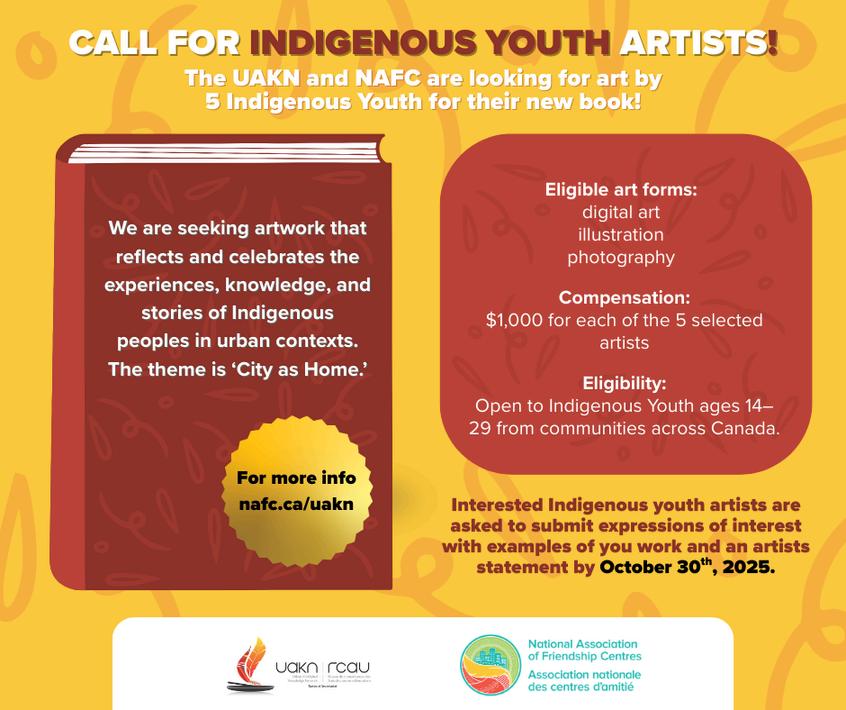
The UAKN is looking for art by five (5) Indigenous Youth for the upcoming UAKN book!
In partnership with the National Association of Friendship Centres (NAFC), the Urban Aboriginal Knowledge Network (UAKN), is in the process of writing a final book based on the last 10 years of urban Indigenous community-driven research across Canada.
Interested Indigenous Youth artists are asked to submit their Expression of Interest with examples of your work and an Artist’s Statement by end of day October 30th, 2025. If you have any questions, please send all your questions to uakn@nafc.ca

This past month, the National Association of Friendship Centres (NAFC) had the privilege of visiting the Under One Sky Friendship Centre in Fredericton, New Brunswick. Representing the NAFC, Omovigho (Movi) Abiri and James Lavallée spent the day connecting with staff, exploring the Centre’s programs, and learning about its vision for the future.
Located in the heart of Fredericton, Under One Sky is a vibrant hub serving urban Indigenous communities through cultural programming, wraparound supports, and community outreach. Executive Director Patsy McKinney warmly welcomed the NAFC team, sharing insights into the Centre’s growth, programming, and upcoming plans.
The visit came at an exciting time as the Centre moves forward with a major expansion project. Movi and James toured both the existing facility and the new building under construction – a space that will significantly enhance Under One Sky’s capacity to deliver inclusive, culturally grounded services while maintaining the welcoming, community- driven spirit that defines the Friendship Centre Movement.
A highlight of the visit was joining the Aboriginal Head Start graduation celebration. The pride among children, families, and staff was a powerful reminder of the importance of early childhood education rooted in culture and community.
The day also provided an opportunity to strengthen dialogue between NAFC and Under One Sky leadership. Conversations emphasized how NAFC can best support Friendship Centres through flexible funding, advocacy, and capacity building – core priorities for ensuring the ongoing success of Centres across the country.
NAFC is grateful to Under One Sky Friendship Centre for their hospitality, vision, and leadership. We look forward to celebrating the opening of their new space and continuing to work together to strengthen the Friendship Centre Movement.
In late June, the National Association of Friendship Centre (NAFC) travelled to Halifax Nova Scotia, to meet with Executive Directors from the Atlantic region’s directly administered Friendship Centres. Hosted by the Mi’kmaw Native Friendship Centre, this two-day session created space to share updates, idnetify priorities, and strengthen collaboration between NAFC and the Centres.
The Atlantic region is unique within the Friendship Centre Movement, as it does not currently have a Provincial Territorial Association (PTA). Instead, five Friendship Centres – Under One Sky (Fredericton, NB), Labrador Friendship Centre (Happy Valley-Goose Bay, NL), People of the Dawn Indigenous Friendship Centre (Stephenville, NL), and Mi’kmaw Native Friendship Centre (Halifax, NS) - are directly administered by the NAFC. This brings both flexibility and the need for intentional coordination and communication.
Participants included Patsy McKinney (Under One Sky), Holly Williams (Labrador Friendship Centre), Stacey Howse (First Light), and Pam Glode-Desrochers (Mi’kmaw Native Friendship Centre). From the NAFC, Omovigho Abiri, Jenna Chisholm, Rufus Jacobs, James Lavallée, and Jocelyn Formsma were in attendance.
Together, the group discussed regional priorities, funding, and how the NAFC can better advocate for the Atlantic Centres at the national level. As a direct outcome, a new meeting schedule was established: Atlantic Executive Directors and NAFC Programs staff will now gather twice annually in person, and twice virtually, ensuring stronger communication and collaboration. To support this work, Movi has been designated as the Programs team’s Atlantic Representative and will serve as the region’s primary point of contact.
The NAFC extends gratitude to the Mi’kmaw Native Friendship Centre for hosting, and to the Atlantic Executive Directors for their leadership and commitment. This visit reinforced the strength of collaboration and the importance of ensuring regional realities inform national priorities.
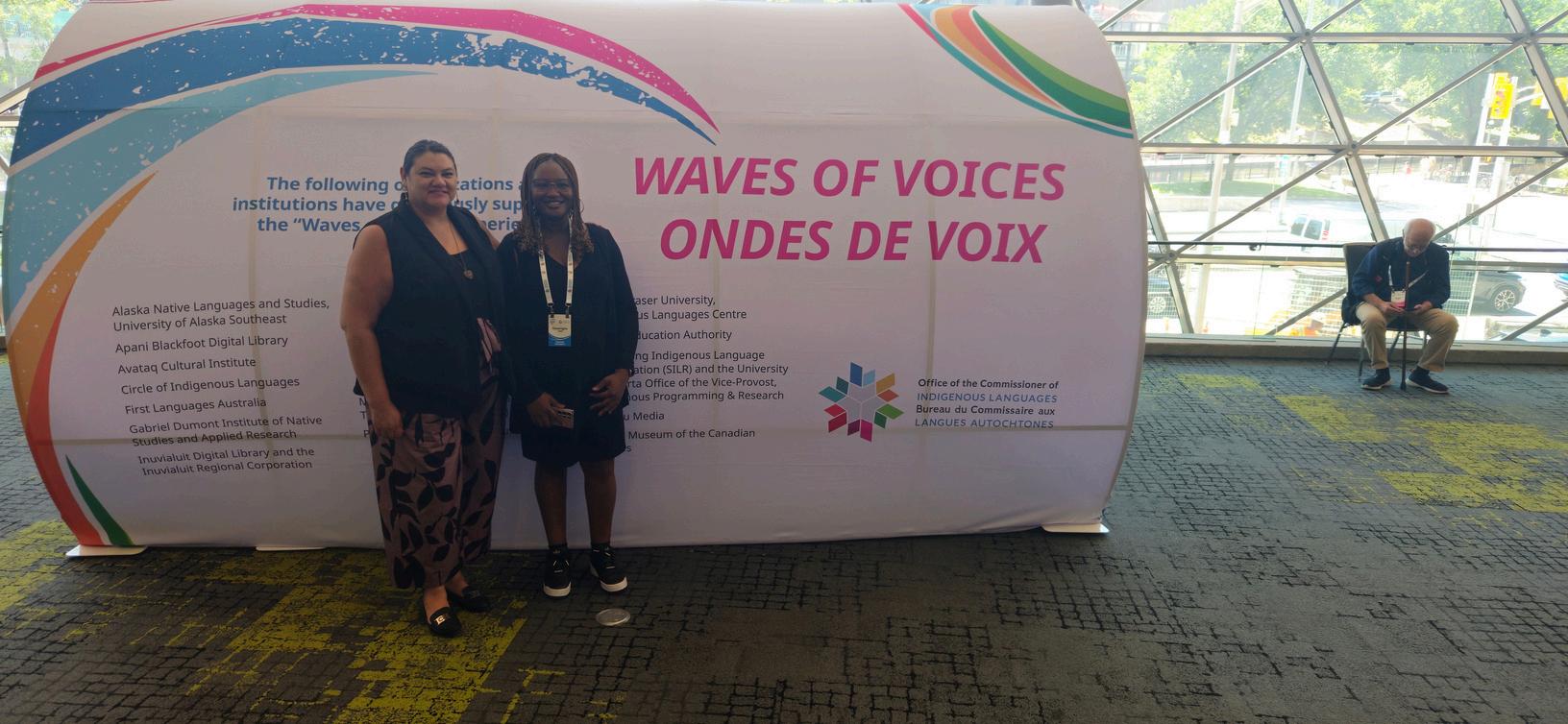
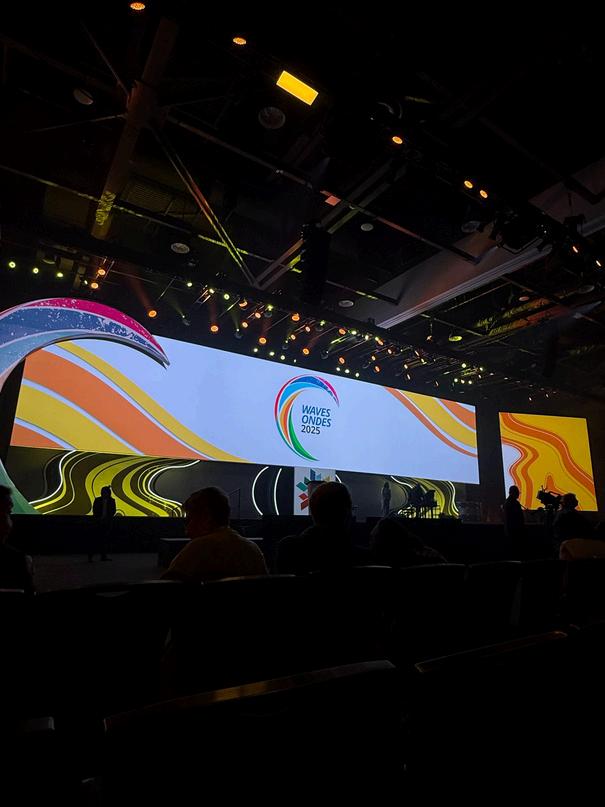
In August, the Office of the Commissioner of Indigenous Languages hosted WAVES 2025, a global Indigenous languages conference that brought together leaders, educators, policymakers, and community members from across Canada and around the world. Held in Ottawa from August 11-14, the gathering provided a platform for sharing strategies, innovations, and experiences in language revitalization, with a strong focus on engaging youth.
NAFC CEO Jocelyn Formsma and Program Coordinator Omovigho Abiri presented on NAFC’s Indigenous Languages Program, highlighting:
The program’s scope and goals, including support for Friendship Centres revitalizing languages in urban settings
Best practices shared by Centres, such as intergenerational learning, innovative teaching approaches, and the use of technology.
The impact of NAFC’s funding streams and resources, which have enabled Centres to expand language programs and increase access for urban Indigenous communities.
Friendship Centres play a critical role in Indigenous language revitalization, the NAFC was honoured to contribute to this global dialogue and remains committed to supporting Friendship Centres in carrying this important work forward.
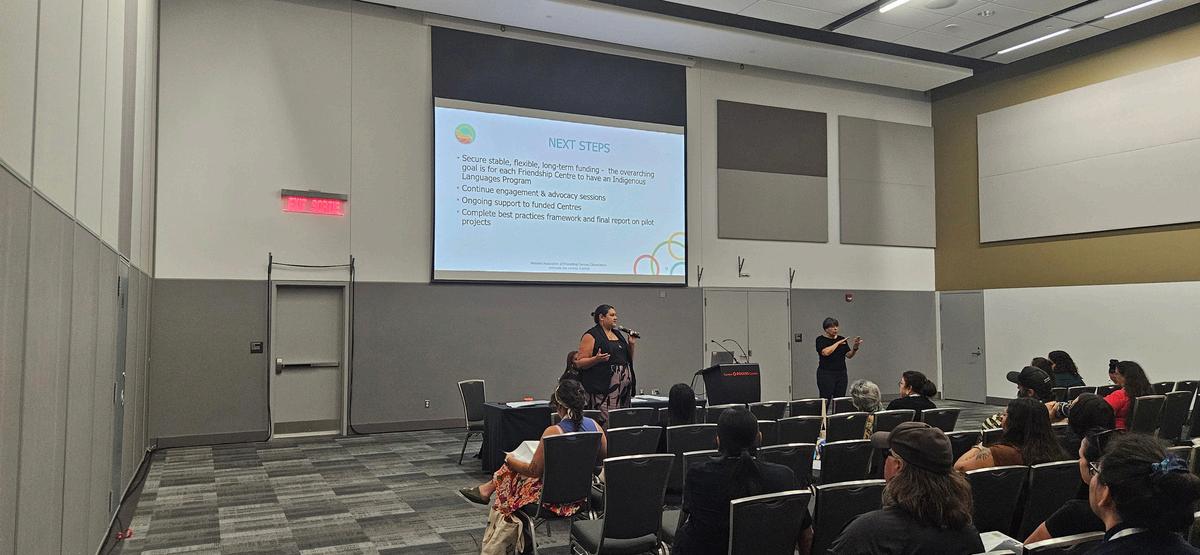
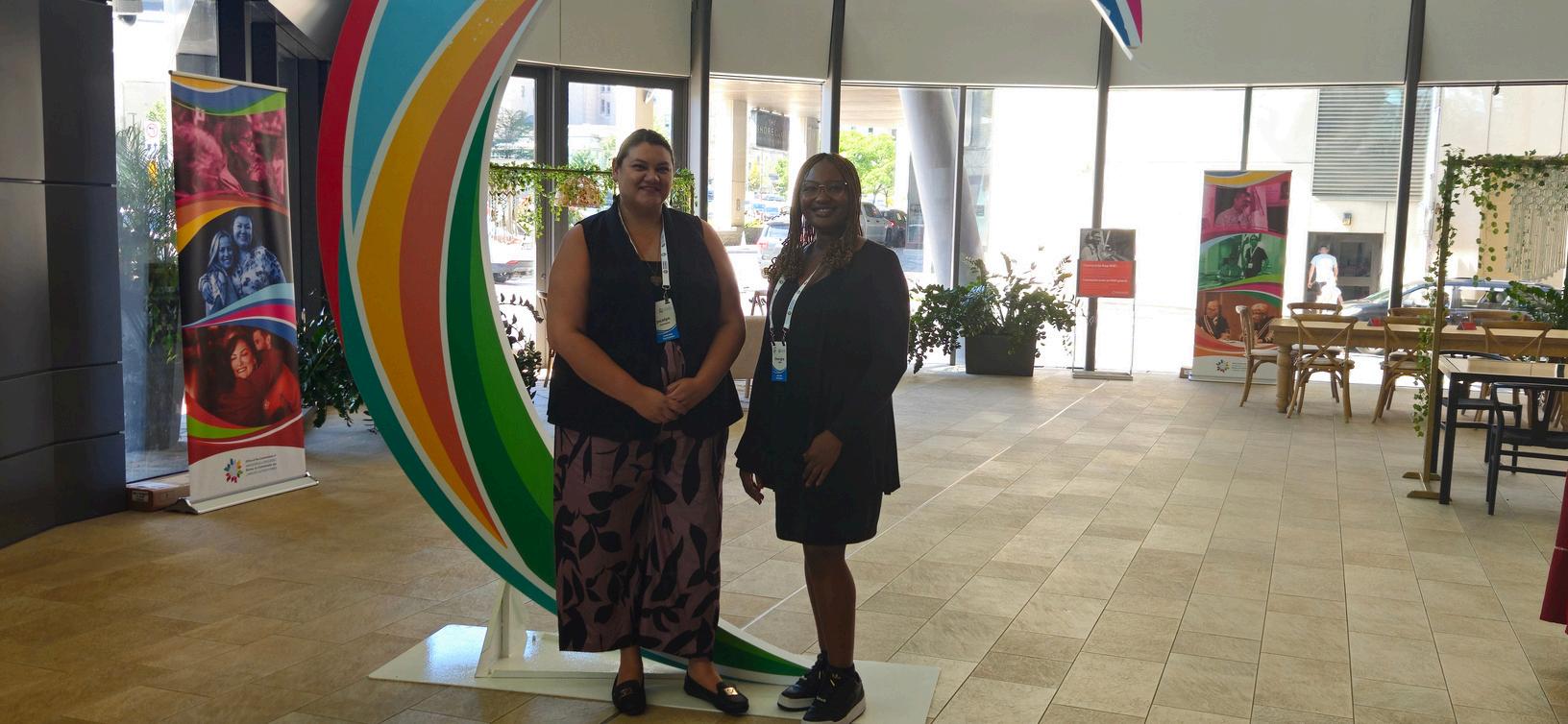
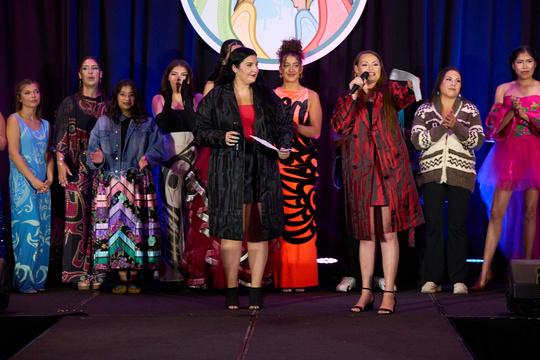


In July, we hosted the 35th Annual Youth Forum in Ottawa, Ontario, with over 150 Friendship Centre youth and observers from across Canada. Programming included daytime panels, keynote speakers, hoop dance performances, and Indigenous Youth Council (IYC) business meetings. Evening highlights included the volleyball tournament (congratulations to Team Manitoba!), a drum social, and the Youth Empowerment Gala. The Gala featured gifts for departing IYC members, the Nelson Mayer Youth Award presentation, and a fashion show in partnership with the Assembly of Seven Generations. The show included 25 Indigenous youth models many from Friendship Centres and even some NAFC staff! The evening ended with a dance party featuring DJ Bear Witness of Halluci Nation.
We extend heartfelt thanks to our sponsors specifically Victoria Native Friendship Centre, and Georgian Bay Native Friendship Centre, and Friendship Centres for making the Youth Forum a success, and we look forward to welcoming even more youth next year. Special congratulations to Damon McAllister, recipient of this year’s Nelson Mayer Youth Award. We also thank outgoing IYC members Averi Doxtator, Taigan Alfred, and Derykah Friesen for their dedication and contributions.
Finally, we are pleased to welcome the newly elected Indigenous Youth Council Executive:
Caley-Rain Anderson, President
Kiera Gomuwka, Vice-President
Nadya Comeau, Secretary

If you would like to submit any photos or news articles about your Friendship Centre that we can share with the Friendship Centre Movement, please send them to communications@nafc.ca.
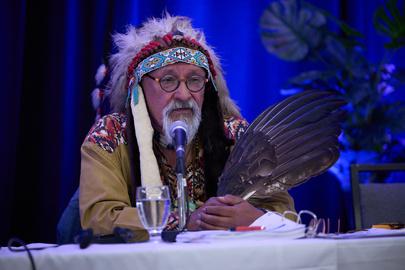


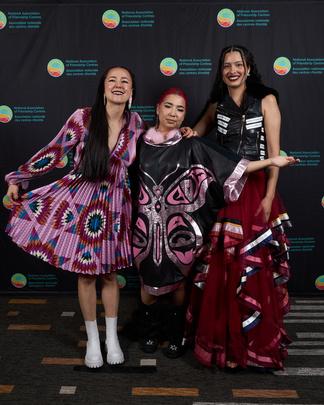
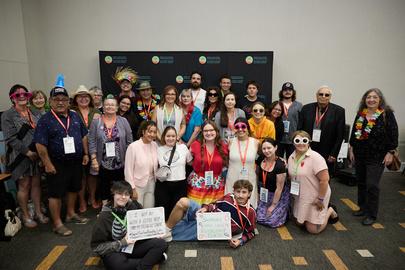


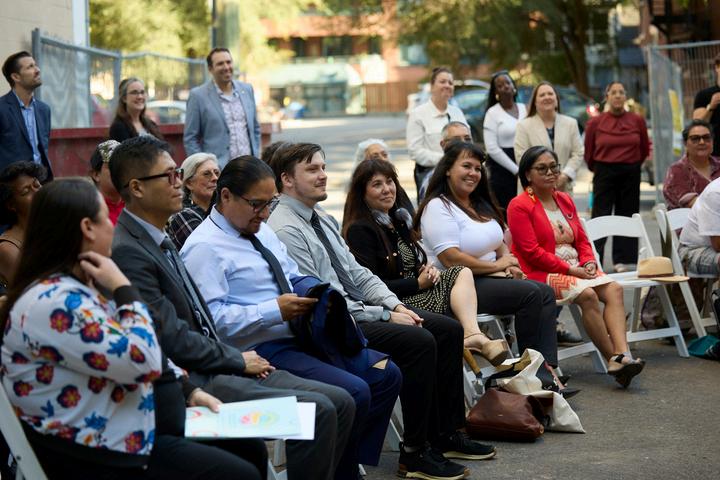
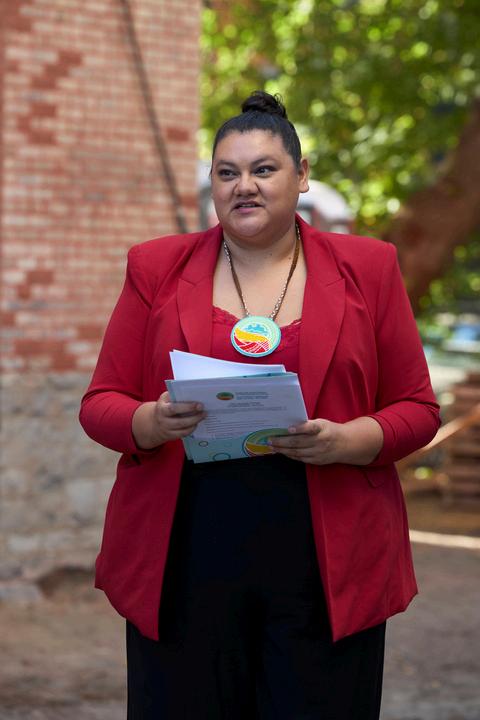
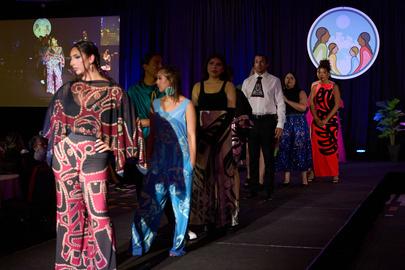
The Friendship Centre Movement has been shaped over a period of 60 years by Indigenous leaders in communities across Canada. These dedicated Indigenous people have greatly contributed to the success and growth of today’s Friendship Centre Movement To view the stories of Friendship Centre trailblazers, or our Spirits of Friendship, click here. We are honoured to have known them and privileged to have worked with them and to be a part of their legacy.

If you think someone should be added to this list, please send an e-mail to communications@nafc.ca with a short bio, specifically detailing their involvement in the Friendship Centre Movement and any photos you would like included

Indigenous History & Heritage Gathering (IHHG) Returns March 2-4, 2026 at the RBC Convention Centre in Winnipeg, MB.
The National Centre for Truth and Reconciliation (NCTR) and the First Nations Confederacy of Cultural Education Centres (FNCCEC) are hosting the Indigenous History and Heritage Gathering (IHHG). This gathering is one of the many important events held during Indigenous History Month. It brings together diverse groups who are working to amplify the distinct stories of Indigenous Peoples across Turtle Island.
Learn More and Register Now at: https://ihhg.ca/registration/
Use the Code: NAFC10 to save 10%!
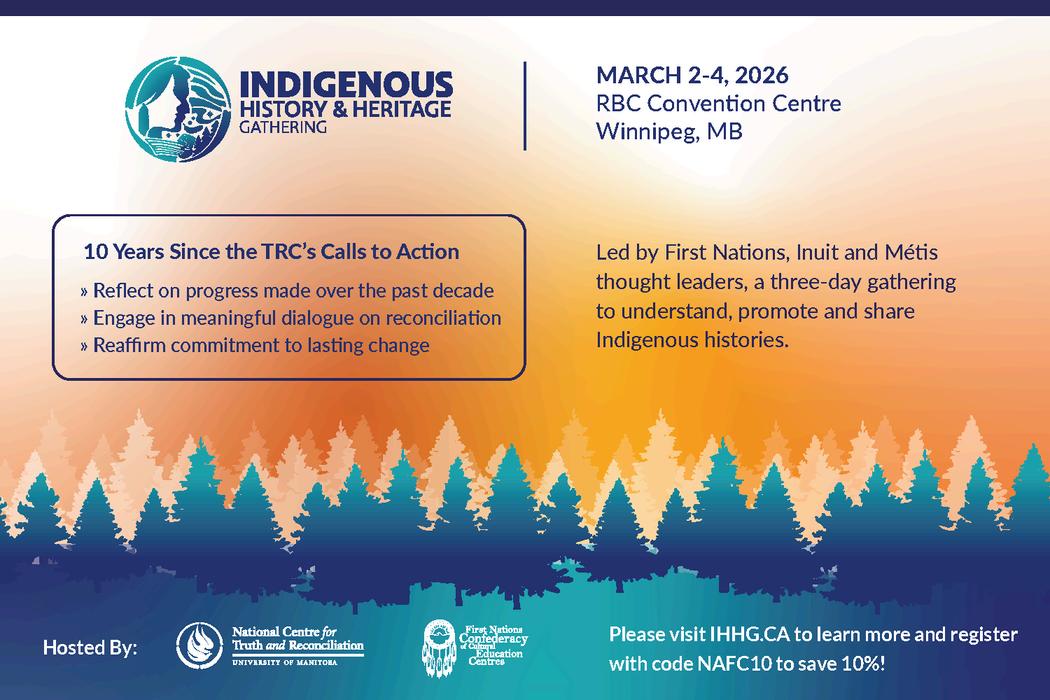
CEO’s Office
Jocelyn W. Formsma Chief Executive Officer
Finance
Law Student Intern
Veronica Wemigwans
Sandra Hines
Director of Finance
Operations
Jennifer Rankin Senior Director
Tristan Nugent
Greg Murray Senior Finance Coordinator
Hong He Senior Finance Coordinator
Administration
Communications
Mel Maracle Office Manager
John Paillé Senior Communications Coordinator
Megan Pearson
Data
Andrew Macumber Senior Information Analyst
Suninda Sharma
Cailin Gerrard Administrative Coordinator HR Coordinator
Communications Coordinator
Liberty Rivers
Lolita Lam Event Coordinator Administrative Coordinator
Riley Gavan
Communications Assistant
Eugehne Adangwa French Translator
Nathanie Data
Research
Gaelle Mushyirahamwe Senior Research Coordinator
Justin Sackaney Research Coordinator
Pictou Research Assistant
Research Assistant
Kole P Data C

Chelsea Combot Policy & Research Manager Policy & Research
Yashi Koopla Policy Analyst
Victoria Marchand Senior Policy Analyst
Kara Louttit Senior Policy Analyst
Janis Tochinskiy Policy Analyst
Rufus Jacobs Program Manager Programs
Natalie Cahill Program Coordinator
Jenna Chisholm Senior Program Coordinator
James Lavellée Senior Program Coordinator
Omovigho Abiri Program Coordinator
Aurora Ominika-Enosse Project Coordinator n


